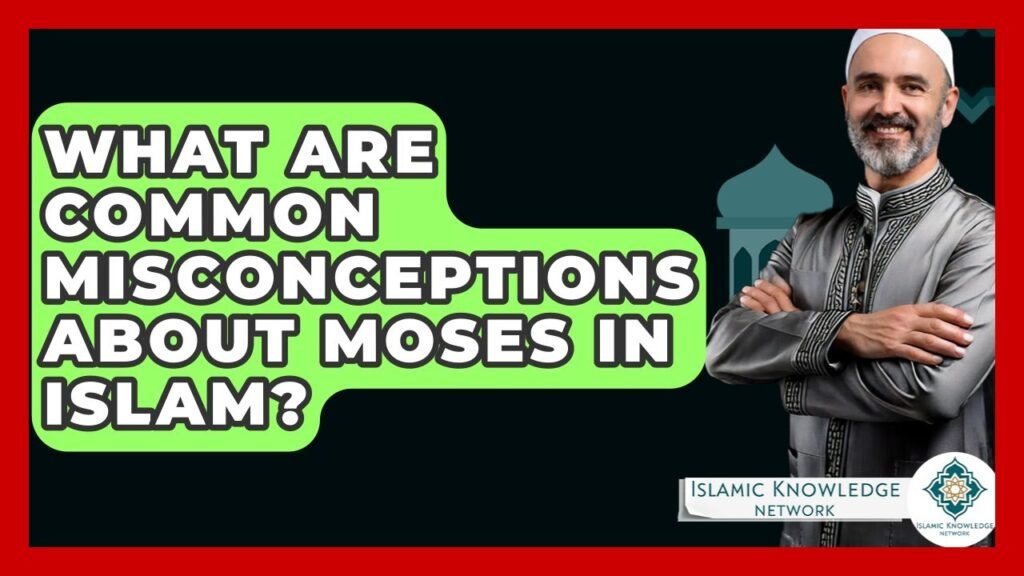Disclaimer:
The content published on this website is provided for general informational purposes only. Articles are generated with the assistance of artificial intelligence and are reviewed periodically; however, accuracy cannot be guaranteed in all cases. Readers are encouraged to verify important information from reliable and authoritative sources before relying on it. The website does not intend to mislead, and any errors found will be corrected when identified.
What Are Common Misconceptions About Moses In Islam? – Islamic Knowledge Network
Moses, known as Musa in Arabic, holds a significant place in Islamic teachings, revered as a prophet and messenger of God. However, misconceptions about his life and role abound, often stemming from differing interpretations between religious traditions. By delving into these misunderstandings, we can foster a greater appreciation of his story and its implications for Muslim beliefs and practices.
At airlinkhajjandumrah.com, we are committed to enhancing your Islamic knowledge by addressing these common misunderstandings. As you prepare for your journey of Hajj or Umrah, understanding the life of figures like Moses can enrich your spiritual experience and provide depth to your worship. Our blog serves as a comprehensive resource, ensuring you remain updated not only about the intricacies of Hajj and Umrah but also about pivotal figures and events in Islamic history. Join us as we explore the truths about Moses in Islam and correct the prevailing misconceptions, paving the way for a more informed and spiritually fulfilling pilgrimage.
Common Misconceptions About Moses in Islam: What Are They?
Moses, known as Musa in Islam, is a revered prophet mentioned frequently in the Quran, yet several misconceptions surround his narrative among non-Muslims. One common misconception is that Moses was merely a historical figure without significant divine support. In contrast, Islamic teachings illustrate him as a messenger empowered by God’s miracles, including parting the Red Sea and receiving revelations.
Another misconception is that Moses’ story is solely about his leadership of the Israelites. In Islam, his role extends to being a moral guide and a symbol of faith, representing the struggles against tyranny and injustice. Notably, the Quran emphasizes that Moses is a precursor to the final prophethood of Muhammad, bridging the messages of monotheism.
For more insights into Islamic teachings and updates on Hajj and Umrah, be sure to explore our blog at airlinkhajjandumrah.com, where we provide comprehensive content to enhance your spiritual journey.
FAQs on Common Misconceptions About Moses in Islam
1. Was Moses considered a prophet in Islam?
Yes, Moses (Musa in Arabic) is regarded as one of the greatest prophets in Islam. He is mentioned frequently in the Quran and is recognized for leading the Israelites out of Egypt.
2. Do Muslims believe the Torah was divinely revealed to Moses?
Muslims believe that the Torah (Tawrat) was indeed revealed to Moses, but they also believe it has been altered over time. The Quran is viewed as the final and unaltered revelation.
3. Is Moses’s story in the Quran different from that in the Bible?
While there are similarities, there are notable differences in the details of Moses’s story, including the circumstances of his birth, his encounters with Pharaoh, and the events surrounding the Exodus.
4. Do Muslims view Moses as the ‘savior’ of his people?
Yes, Muslims view Moses as the liberator of the Israelites, but they emphasize his role as a prophet guiding his people towards faith in one God, rather than solely as a leader or savior.
5. Is Moses’s relationship with God depicted differently in Islam?
In Islam, Moses is depicted as having a direct and intimate relationship with God, communicating with Him through the burning bush and receiving divine commandments, similar to other Abrahamic faiths but with unique contextual differences.
What Are Common Misconceptions About Moses In Islam? Have you ever considered the role of Moses in Islamic teachings and the common misunderstandings surrounding his character? In this informative video, we will clarify some of the prevalent misconceptions about Moses, known as Musa in Islam, and his significance within the Islamic tradition. We will discuss how Moses’s narrative aligns with earlier scriptures, the moral character attributed to him, and the connection between his message and that of Prophet Muhammad.
Additionally, we will address the perception of Moses’s laws and their relevance in contemporary times, emphasizing the universal principles of justice and morality that transcend specific legal details. Understanding these aspects not only corrects misconceptions but also highlights the continuity of divine guidance throughout history. By recognizing the shared heritage among Muslims, Jews, and Christians, we can cultivate a deeper respect for diverse faiths and learn valuable lessons from the stories of previous prophets.
Join us for this enlightening discussion, and don’t forget to subscribe to our channel for more informative content on Islamic culture and teachings.
⬇️ Subscribe to our channel for more valuable insights.
🔗Subscribe:
#MosesInIslam #IslamicTeachings #ProphetMusa #QuranicStories #InterfaithRespect #DivineGuidance #ProphetMuhammad #IslamicCulture #Monotheism #JusticeInIslam #MoralCharacter #ReligiousHeritage #UnderstandingIslam #LessonsFromProphets #FaithAndRespect
About Us: Welcome to the Islamic Knowledge Network, your go-to source for deepening your understanding of Islam. Our channel is dedicated to exploring the rich tapestry of Islamic teachings, history, and culture. Here, you will find engaging discussions on the Quran, Hadith, and the lives of the Prophets, alongside contemporary issues faced by the Muslim community.
Mushu, an experienced Saudi Arabia traveler and writer, shares insightful tips and spiritual reflections to enhance Hajj and Umrah journeys for fellow pilgrims. He has been to Makkah and Madina from 2016 to 2023 many times and his posts will reflect this.







